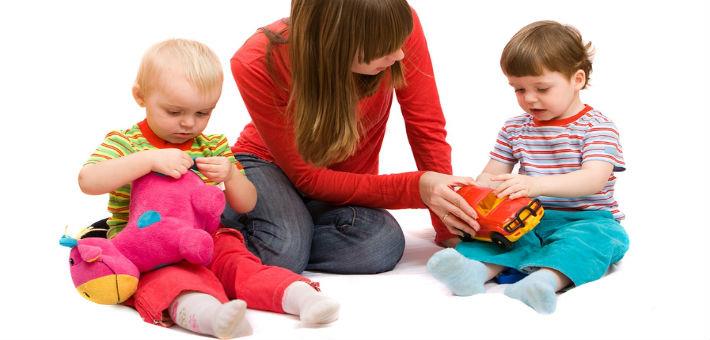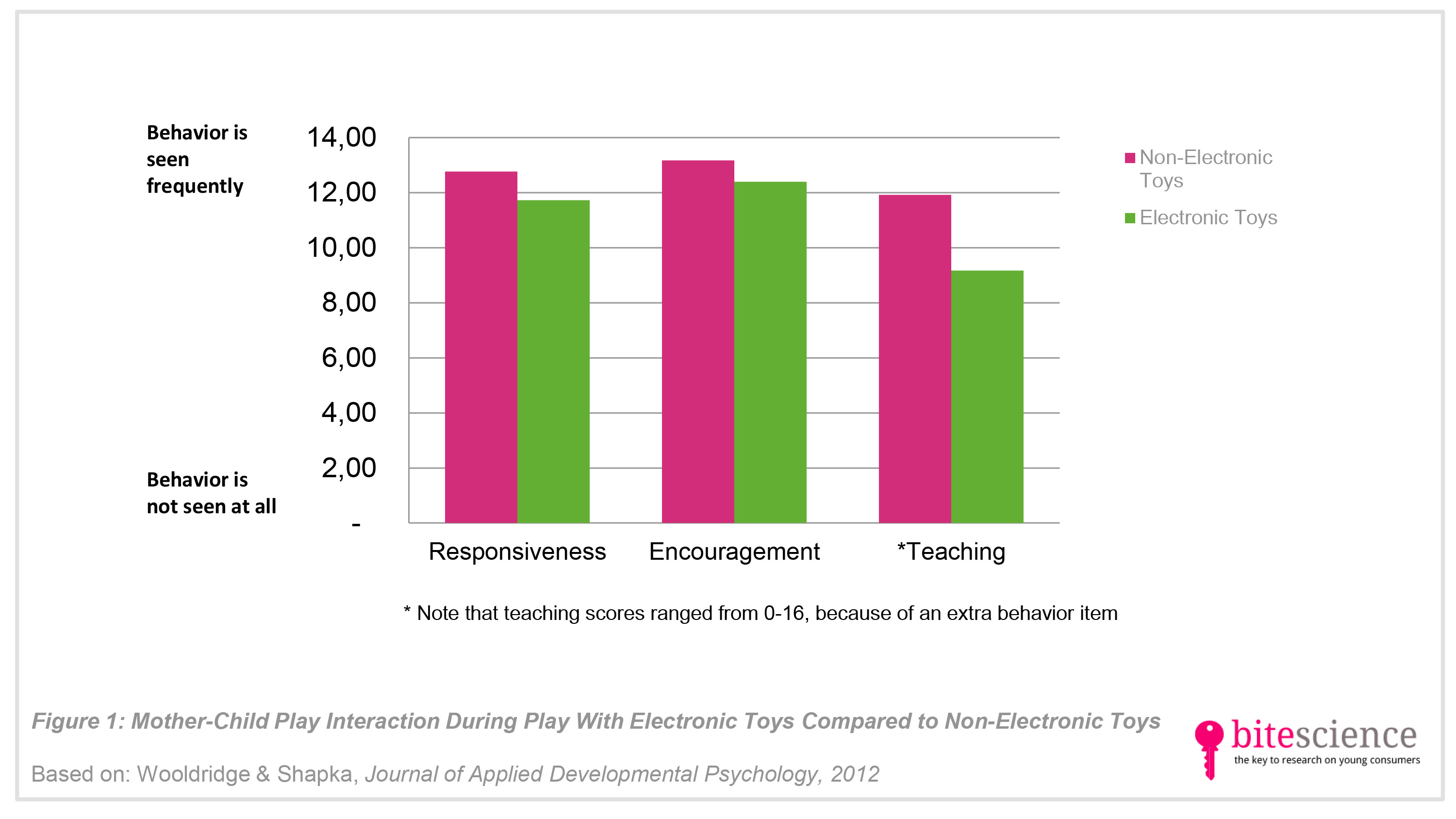
Rich Mother-Child Play Interaction? Not While Playing With Flashy Toys
Many parents buy their newborns electronic toys (battery-powered or digital). Babies love to play with electronic toys, as they are drawn to the beeping, blinking, and flashing. However a study published in the Journal of Applied Development Psychology shows that the quality of mother-child interaction suffers under electronic toy play. Mothers are less responsive, encouraging, and educative with their babies (16-24 months of age) while playing with electronic toys than while playing with non-electronic toys.
Take aways
- Electronic toys (battery-powered or digital) decrease the quality of mother-child play interactions.
- Mothers play less interactive (i.e., less responsive, encouraging, and educative) with their babies when playing with electronic toys than with non-electronic toys.
- Because of the benefits of parent-child play on babies learning and social skill development, it’s wise to stimulate parents to keep interacting with their babies while playing with electronic toys.
Study information
The question?
Do electronic toys (battery-powered or digital) influence the quality of play interactions between mother and baby?
Who?
25 babies, between 16 and 24 months of age (mean age: 19 months; 76% were Caucasian, 12% East Asian, and 12% had mixed racial backgrounds) and their mothers
Where?
Southern British Columbia, Canada
How?
Parent-child play interactions were recorded and observed at the participants’ home for 20- to 30-minutes with a checklist named ‘The Parents Interacting with Children Checklist of Observation Linked to Outcomes’ (PICCOLO). This checklist looked at 29 different parent-child play interactions, such as expressions, responses, and supports. Mothers were instructed to play with both electronic (i.e., battery-powered or digital) and non-electronic toys. They were asked about the amount of electronic toys present in their homes and their perceived benefits of joint play as well.
Facts and findings
- Mothers played less interactive with their babies when they played together with electronic toys than with non-electronic toys:
- Mothers were less responsive (e.g., contact-making, interested);
- less encouraging (e.g., supportive, creative);
- and less educative (e.g., asked less questions, repeated less words) (See Figure 1).
- Mother’s showed as much affection (e.g., smiling, tone of voice) while playing with electronic as with non-electronic toys.
- Almost half of the toys babies own were electronic.
- The vast majority of the mothers (88%) believed that playing with their child stimulated their babies cognition (e.g., learning, problem solving).
- Joint play was also viewed beneficial for the development of social skills (48%), perceptual motor-skills (44%), creativity (36%), and language (24%).
- Critical note: The researchers studied only 25 mothers together with their babies, and the conclusions may not hold for all mother-child play interactions.
